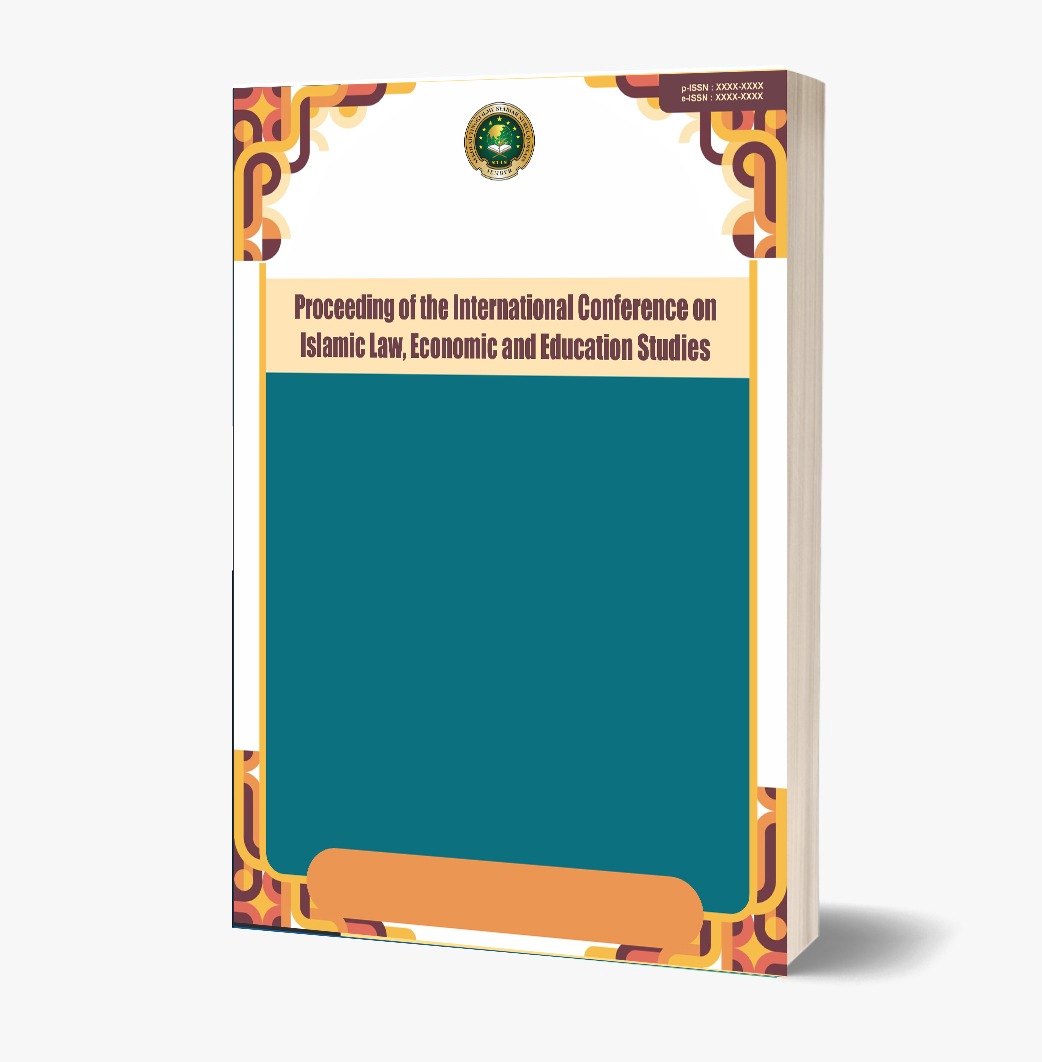Influence Management Market Capital Sharia Towards the Economy in Indonesia from the Perspective of Islamic Economic Law
Keywords:
Influence, Market, Capital, Sharia, EconomyAbstract
Sharia capital market management has become the focus of attention in developing a financial system that meets sharia principles. This research analyzes the impact of Islamic capital market management on key aspects of the economy such as economic growth, financial stability, investment, and poverty alleviation. The research used is a qualitative library study, taking references from journals and books. The analysis results show that Islamic capital market management has a significant positive impact on the economy. First, in terms of economic growth, the sharia capital market strengthens a sustainable financial sector by increasing access to capital for productive sectors in accordance with sharia principles. Second, in the context of financial stability, Islamic capital market management tend to reduce systemic risk by focus on more sustainable investments and avoiding speculative practices. Third, investment in the Islamic capital market encourages infrastructure development, innovation and real sector growth. Lastly, through fair and sustainable financial instruments, the Islamic capital market can play a role in reducing economic disparities and poverty.
References
Abdullah, A. A. (2021). Market capital sharia in Indonesia: Review theory and legal aspects.
Andrew, F. (2020). Investment mutual funds sharia in Indonesia: Islamic mutual fund investment in Indonesia. Journal Study Finance and Banking Sharia, 44-65.
Auliyatussa'adah, N. (2021). Influence of shares and mutual funds sharia on economic growth in Indonesia from 2013 to 2019. Journal of Islamic Economics and Finance, 1-9.
Blessings of Allah, D. H. (2022). The influence of inflation, sharia shares, sukuk, and mutual funds on national economic growth from 2013 to 2020. Sinar Manajemen Journal, 158-169.
Dear, N. (2019). Development of market capital sharia and its contribution to Indonesia's economic growth. Inclusive Journal, 70-72.
Diana, A. M. (2019). How the existence of market capital sharia influences national economic growth rate. Journal of Islamic Economics and Banking, 270-272.
Fathoni, H. (2021). The role of market capital sharia in the economic growth rate in Indonesia. Multidisciplinary Treasury, 33-44.
Heradiaska, B. S. (2021). Regulation of the board supervisor of sharia market capital in Indonesia. Journal Economy Islam, 77-94.
I am Very Grateful, A. (2021). Influence of sharia shares, bonds, and mutual funds on economic growth in Indonesia with mark swap as a moderating variable from 2011 to 2020. Journal of Economics, Management, Accounting, 11-19.
Muchtar, E. H. (2021). Corporate governance draft and its implementation on Islamic stock issuers. Indramayu: CV Adanu Abimata.
Muhammad. (2020). Bank & institution finance sharia other. Depok: Eagle Press.
Prasetyo, M. J. (2022). The influence of investment knowledge, investment risk, and investment motivation on interest in investing in market capital sharia. Journal Economics, Management, Business and Accounting, 779-788.
Puspitasari, V. E. (2021). The influence of sharia finance literacy, perception of return, and motivation towards investment interest in Islamic capital markets. Journal of Islamic Economic and Finance Studies, 122-141.
Rustina, D. & (2022). Strategy in market capital sharia. Journal Knowledge Computer, Economy and Management, 1578-1589.
Sari, E. K. (2021). Analysis of the influence of sharia market capital products and non-bank financial institutions on Indonesian economic growth in 2014-2020. Journal of Economics, Management and Finance Education, 103-118.
Sustainable, I. D. (2023). Development of mutual funds sharia in Indonesia. Journal Scientific Economics and Management, 182-190.
Syaripudin, E. I. (2024). Sukuk in perspective of sharia economic law. Journal Naratas, 1-10.
Yusrina, R. D. (2023). Structure of market capital perpetrators in Indonesia. Journal Study Economy & Islamic Business, 1171-1180.





